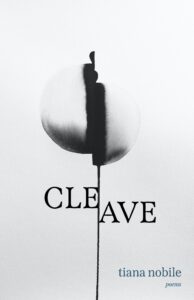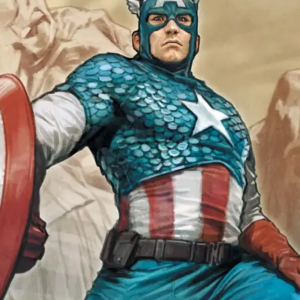
Subverting the Script of the Adoption Industrial Complex
Tiana Nobile on Resisting the Erasure of Adoptees’ Stories
I was born in South Korea in October 1987. In April 1988, I arrived in the United States.
How does one begin to unravel all that distance?
Though I do not recall the journey, the body remembers.
The condition of the transracial, transnational adoptee is one that I barely understood for most of my childhood. The strict script of good-home-happy-family was one that was stamped on my forehead, trademarked by Adoption, Inc. Later, I learned that the adoption industry is an international, multimillion-dollar enterprise specializing in the transport of babies. The possibility that the experience could be complicated—that an adoptee could feel both loved by their adoptive family and grief for their abandonment, that gratitude and luck have nothing to do with it—was far from accessible.
For years, I kept my head down and tried my best to understand the meaning of belonging. My confusion started early; when I was six, the white kids at school pulled their skin taut at the temples and yelled nonsense words across the tops of bus seats. In middle school, I was told to go back to China, a country I couldn’t even try to claim. By the time I was a teenager, I learned about the perceptions of a body: how I could be both doll and dragon, simultaneously desired and disdained. I learned to give myself away to inferior boys and, later, destructive men. I made myself as small as possible to avoid any kind of attention.
Through language, I could imagine and project new mythologies about my lineage, origin, and the many journeys I have since traversed.
As I write this, racist violence against Asian American people is on the rise, culminating in the murder of six Asian women in Atlanta. The family and community of Christian Hall, a transracial Chinese American adoptee, are seeking justice for his murder by a police officer last December. I can’t help but think of how legacies of violence and grief are deeply embedded in the Asian American experience. I’m thinking about Phillip Clay, an adoptee who committed suicide after being deported to Korea because his American parents never filed for his citizenship. I’m thinking of Vincent Chin, also an adoptee, who, nearly 40 years ago, was brutally murdered by two white men as they hurled racist slurs. No matter how much we try to minimize our existence, our bodies continue to be marked as “other.”
While the adoptee is often overlooked when it comes to Asian American discourse, our experience is that of an Asian American person. Migration, alienation, and erasure cannot be disentangled from this story. What does it mean when a Korean person who was forcibly removed from their country of origin and sent to the United States to be raised by a white family gets forcibly removed again as an adult? Where is “home” in such a story? Where do Asian American adoptees belong in the telling of the so-called great American project? It is past time for us to take control of our narrative, to tell our own stories, to write our own poems.
As a child, my origin story was a gaping hole I did not know how to fill. Through writing, I was able to fill the absence with language. On some days, the page became a vessel where I could wrestle with the specters of a lost family, country, and history. On others, it was a triage station, where I tended to the wounds of separation. Rather than see loss as a void, I began to consider it an opportunity to conjure the ghosts of my family, both in Korea and the United States, to ask them questions, and to hold them accountable.
Despite the fact that I do not remember, I carry the trauma of my early abandonment and displacement in my body. I feel it rise like a tide in my throat every October, my birth month. In the poem, I could transmute my anxiety into palpable rage and grief. I could push against the boundaries of the stories I was told, disrupt the whitewashed telling, and impose something entirely my own. Through language, I could imagine and project new mythologies about my lineage, origin, and the many journeys I have since traversed. When words were still not enough, I called attention to the silence by emphasizing the blankness on the page.
To consider the pain of abandonment alongside questions of home on top of love and loss is not a straightforward task.
Early on in my process, I began by seeking out artifacts: personal files, historical accounts, newspaper articles, scientific research, interviews. As the archive grew, so did my questions: Who is telling the story and for whom? How does the story change based on who is in power? Why is there such a lack of adoptee voices and perspectives? Who speaks for the babies and their mothers? Where do I fit in this intricate web?
When the vast majority of adoption stories are told by adoption agencies and adoptive parents, the narrative becomes flattened. Therefore, to pivot and position the adoptee at the center becomes a radical act of resistance against erasure and obscurity. With that in mind, incorporating language from other texts in my poems felt like a subversive reversal. Through erasure and collage, I was able to disrupt the cold and sterile language of official documentation and make it serve a new purpose. I could destabilize the original narrative and uplift a previously marginalized perspective—that of my newborn self.
I also began a dialogue with history. I learned about the recurring practice of mass adoption that happens as a result of war and occupation. My eyes were opened to such instances as Operation Babylift at the end of the Vietnam War, Operation Peter Pan in post-revolution Cuba, and the Stolen Generation in Australia. Everything I absorbed informed my work and helped me situate myself within the larger context of the adoption industrial complex. To consider the pain of abandonment alongside questions of home on top of love and loss is not a straightforward task; however, all of this can and does exist simultaneously. As a poet, I feel a deep responsibility to navigate this thorny terrain.
__________________________________

Cleave by Tiana Nobile is available via Hub City Writers Project.
Tiana Nobile
Tiana Nobile is the author of Cleave (Hub City Press, 2021). She is a Korean American adoptee, Kundiman fellow, and recipient of a Rona Jaffe Foundation Writer's Award. A finalist of the National Poetry Series and Kundiman Poetry Prize, her writing has appeared in Poetry Northwest, The New Republic, Guernica, and the Texas Review, among others. She lives in New Orleans, Louisiana. For more, visit www.tiananobile.com



















